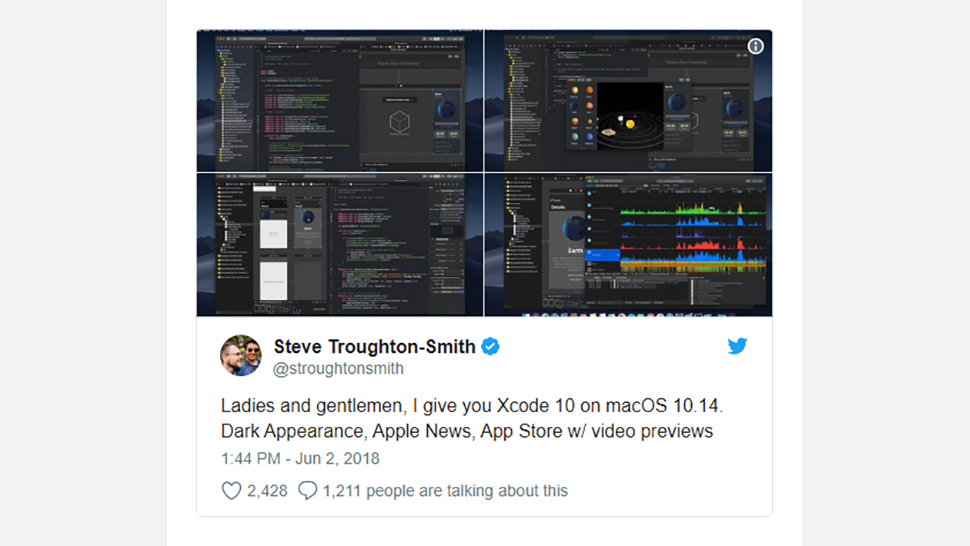Music
Trailers
DailyVideos
India
Pakistan
Afghanistan
Bangladesh
Srilanka
Nepal
Thailand
Iraq
Iran
Russia
Brazil
StockMarket
Business
CryptoCurrency
Technology
Startup
Trending Videos
Coupons
Football
Search
Download App in Playstore
Download App
Best Collections
Technology
Thereno secret the tech industry suffers a reputation for harmfully disrupting a community. But not everyone in tech is to blame for the negative effects. In 2015 Ben Kovacs and Joel Lunenfeld founded the non-profit Guardian Gym, a buy-one give-one mixed martial arts gym/after-school program that now boasts over 300 adult members and youth mentees. Kovacs attributes the success of the gyms growth partly to Dick Costoloexample at Twitter.
&He talked to the people, he made everyone feel important, everyone thought he was their friend,& Kovacs said. &And I realized that we needed to build a similar type culture if we wanted to be here for the next couple of decades.&
The first of its kind gym is outgrowing its current space and is in the process of securing a second location to meet the communityneeds. Kovacs plans on having a proper classroom space, nap pods, indoor/outdoor BBQ and lounge area, as well as an all-youth jiujitsu and boxing program from 5-9 p.m. that runs concurrently with the adults.
&Imagine a place a kid could go every day and essentially have everything they need to be healthy, to get their exercise out, eat nutritious meals, and of course do their homework,& said Kovacs.
You candonate to the new site on their Gofundme page.
- Details
- Category: Technology
Read more: Former Twitter employees prove innovation isn’t just for profit
Write comment (99 Comments)For most people, the thought of a smart device sharing their intimate conversations and sending those recordings along to their acquaintances is the stuff of dystopian nightmares. And for one family in Portland, ita nightmare that became all too real when their Amazon Echo sent a recording of a private conversation to a random contact in their phone book.
Mercifully, the recorded conversation was fairly banal — a chat about home renovations. But as smart home technology is swiftly being integrated into our daily lives and private spaces, itnot difficult to imagine far worse scenarios.
Smart speakers record residents& conversations. Thermostats equipped with motion sensors track the whereabouts of each household member, and when they leave the house. Refrigerators remember grocery lists and spending habits. One thing is clear: when residents invite smart technology into their homes, they are gambling with their privacy.
Ironically, the smart home may turn out to be the salvation of online privacy itself. Internet companies have gotten away with hoarding peoplepersonal data for so long in part because of what experts call &the privacy paradox&: while most people claim to care deeply about online privacy, very few of them take action to protect it. Just look at the recent furor over Facebooklack of data privacy protections, which resulted in the compromise of 87 million users& personal information. Though plenty of people tweeted they would #DeleteFacebook, how many actually permanently closed their accounts Certainly far fewer than 87 million.
While experts disagree about why this paradox exists, at least some of the problem seems rooted in the fact that online space is virtual, whereas our privacy instincts evolved in physical space. By bringing virtual privacy incursions into the physical world—particularly into the protected private space of the home—smart home technology could short-circuit that dynamic.
The internet is intangible, and so its privacy risks appear to be too. Itone thing to know, in the back of your mind, that Facebook has the ability to comb through your private messages. But when devices in your home are recording your spoken conversations and physical movements, itharder to ignore the looming threat of potentially disastrous privacy violations.
If smart fridges and smart locks get people to take online privacy as seriously as physical privacy, they could do what the Equifax hack and other high-profile data breaches could not: actually get people to change their behavior. If users vote for privacy with their feet—or their wallets—they could spur a wholesale rethinking of the online economy, away from one-sided exploitation and toward greater trust and transparency.

Privacy in virtual space
In Western culture, the home has long been recognized as a protected zone; the Talmud includes prohibitions against putting in windows in a house that directly look into a neighbor&s. When a stranger peeps through our window or listens at our door, millennia-old norms tell us we should chase them away. This desire for isolation may stem from a fundamental biological need; whether you&re a human or a possum, physical withdrawal means concealment and protection from predation, making privacy an evolutionary life-or-death matter.
But websites and apps have no physical presence in our lives. A software algorithm, no matter how malicious, doesn&t have the visceral menace of an unknown face at the glass. The internet disarms us by making our interactions feel abstract, even unreal. One 2016 study posited that this sense of unreality leads to contradictory attitudes about online privacy: while people know rationally that they should be concerned about virtual incursions, they simply don&t have a strong &gut feeling& about it intuitively. And when making decisions in the moment, gut feeling often wins out.
The problem is exacerbated by the fact that online, there is less of a clear distinction between private and public space. We use social media to communicate simultaneously with hundreds or thousands of anonymous followers and with our closest friends. Email inboxes, Slack channels, and the like are more obviously &closed& spaces, but even there itoften unclear to users which algorithms might be listening in. Even Snapchat—known for auto-deleting users& photos, videos, and chats to protect their privacy—announced it would allow retargeted ads in fall 2017, to relatively little backlash. Ithard to think about protecting ourselves from the stranger peeping in the window when we&re not even sure if ita public or private space he or she is looking into. Whatmore, many users tend to imagine online &walls& that aren&t really there.
Multiple studies have shown that the mere existence of a privacy policy on a website makes users feel more secure, even though a policy in itself is no guarantee that their data won&t be sold to third parties.

&How secure are your light bulbs&
When the internet enters the clearly private space of the home, some of that ambiguity will to disappear. Ittelling that a November 2017 survey by Deloitte found that consumers are more cautious in general about smart home devices compared to general online activities or even other categories of IoT. Forty percent of respondents said that they felt smart home technology &reveals too much about their personal lives,& while another 40 percent said they were worried about their usage being tracked. By comparison, they were less mistrustful of other IoT applications like autonomous vehicles and smart car technology, even though they have similar tracking capabilities.
And that survey only considers peoples& reaction to fairly abstract privacy risks. The reality is that in a smart home, security vulnerabilities and data breaches can have much more dramatic real-world impacts. On his blog Charged, developer and journalist Owen Williams recently detailed his experience trying to figure out who or what kept overriding his brightness settings for his Phillips Hue smart light bulbs. It turned out that an app he&d enabled to dim his office lights at night had taken over all the bulbs hooked up to Williams& Hue system and was keeping them at one uniform brightness.
As Williams points out, if a malicious app accomplished the same feat, it could extort money from the user by &randomly changing the brightness or color of lights until they pay.& When a cyberattack results in lights that won&t stop flashing—or doors that won&t lock, windows that won&t close, or a fridge turns itself off and melts all your ice cream—itlogical that peoplereactions to digital privacy incursions will become that much more extreme.

Image courtesy of RamCreativ
Trust is the antidote
How can internet companies thrive in the privacy-sensitive space of the home If privacy behavior is mostly about gut feelings, they&ll need to reinforce positive ones by winning consumers& trust.
Trust has not historically been a major factor in the adoption of complex new technologies—research into technology acceptance models on both virtual and IOT systems shows that usability has been much more important. Even heavy users of Google and Facebook probably wouldn&t say that they trust either company very deeply.
However, a look at another internet giant, Airbnb, shows how this calculus changes when users& homes and not just their online identities are involved. Airbnb puts trust at the core of its business model. Hosts are only willing to open their homes to strangers because the company empowers them with access to information about potential guests (which the guests themselves choose to provide), including their bio, reviews, and public Facebook profile.
By focusing on forging connections between hosts and guests, Airbnb builds community and reduces the uncertainty that pervades users& relationships with so many internet companies. Airbnb is also relatively transparent about how it collects and analyzes user data, and often puts it to use in ways that increase users& control over how they use the platform—for instance, to generate more accurate pricing suggestions for hosts. The result: it pushes users& concerns about opening their homes or staying in others& spaces out of the realm of gut feeling into that of a more considered, rational (and easy to ignore) concern.
If they want to thrive amid rising privacy concerns in the long term, manufacturers of smart home products, would be wise to take a page from Airbnbbook. They should find ways to forge trust through absolute transparency, sharing with customers what data is being collected and how itbeing used. They should create new business models that don&t rely on collecting terabytes and terabytes of personal data, but on building trust & and even community & with customers.=
Companies should not only implement best practices for personal data encryption, storage, sharing, and deletion, but design their products around the customerability to control their own data. If the development of IoT follows this path, the next 10 to 15 years won&t bring an inevitable erosion of privacy, but its renaissance.
- Details
- Category: Technology
Read more: Will smart home tech make us care more about privacy
Write comment (90 Comments)Netflix revival of Arrested Development may have had a mixed reception from critics and fans, but the dysfunctional Bluth family isn&t done yet.
Five years after the premiere of the much-anticipated fourth season, Arrested Development is back for season five — or rather, the first eight episodes of the season, with more to follow later this year. On the latest episode of the Original Content podcast, we&re joined by TechCrunchLucas Matney to discuss our thoughts on the show.
For many fans, this new season may feel like a return to form. Not everything works — therestill some awkward editing and greenscreen — but itback to the format of the showclassic episodes, with lots more delightful bickering between characters like Michael (Jason Bateman), George Michael (Michael Cera), Gob (Will Arnett), Maeby (Alia Shawkat) and Lucille (Jessica Walter).
Unfortunately, ittough to talk about the showquality without also acknowledginga recent group interview with The New York Times, where actor Jeffrey Tambor was asked about yelling at Walter, who apparently started crying while a number of the male cast members to seemed to defend Tamborbehavior. They&ve since apologized, but we still wrestle with how the controversy changes our perception of the show.
We also talk about another big piece of streaming news, namely Amazondecision to revive The Expanse after it was canceled by Syfy.
You can listen in the player below, subscribe using Apple Podcastsor find us in your podcast player of choice. If you like the show, please let us know by leaving a review on Apple. You also can send us feedback directly.
- Details
- Category: Technology
Read more: ‘Arrested Development’ struggles to shake off recent controversies
Write comment (100 Comments)&Despite many pronouncements that 2016 was the year of VR, a more apt word for virtual reality might be absence,& The Economist observed caustically last summer, noting that during that year forecasts of combined sales of VR hardware and software dropped from $5.1bn to $3.6bn to the harsh reality of $1.8bn. But hey, one rough holiday season does not an industry make, right Surely in 2017 things began to —
— oh. &Shock Stat: In 2017, VR Headset Shipments For Most Top Brands Went DOWN Compared To 2016.& So much for the many predictions that VR headset shipments would grow exponentially for years. Crow appears to be the appetizer for nearly every industry dinner these days. But that was before the Oculus Go, right Except … the Go seems to have sold at most a quarter of a million units in its first few weeks, far behind the comparably priced Nintendo Switch released months earlier, and as I write this languishes well outside the top 20 of Amazon&Video Games > Accessories& bestsellers.
I mean. These aren&t terrible numbers. SonyPlayStation VR has sold almost 3 million units! … which is to say, itreached almost 4% of PlayStation owners. But aren&t VR and AR supposed to be the Next Big Thing, not the Next Little Niche And doesn&t that mean their reach is supposed to grow exponentially, not linearly
AR is in everyonehands, of course, courtesy of AppleARKit, GoogleARCore, FacebookAR Studio, etc. But, quick, name a popular/successful AR smartphone app a) that isn&t Pokémon GO b) doesn&t involve furniture!
If I&m pointing accusatory fingers at anyone I&m pointing them at myself. I too expected VR/AR to be much further along by now. I though we&d see hit games that could only be played in VR. I thought Pokémon GO, which launched twenty-three months ago, was the harbinger of a whole new wave of AR worlds, some of which would then begin to interrelate and cross over. In the long run maybe it will still seem that way. But in the short term —
— well, I dropped by the Augmented World Expo in Santa Clara this week, and my main takeaway was that the industry has essentially abandoned the consumer AR/VR space, at least for now. Everyoneaiming at AR/VR for work now. But how many jobs are there, really, where complex information needs to be accessed in a hands-free way How many problems can be solved by VR conferencing but not videoconferencing Sure, they exist, and the tech can be spectacularly great for them; but, again, for now at least, we&re talking Next Little Niche.
I did see one really eye-opening thing, which led me to the sudden belief that the humble QR code will achieve its apotheosis in mixed reality:
…but what use is a bridge between two worlds when nobody bothers spending any time in one of them
&But gaming!& you say. &I mean, immersive storytelling!& Sure. I&m super excited about that too; I&m a novelist in my spare time, after all. And that is the industry bright spot right now; &location-based VR,& i.e. &VR arcades,& are growing in number, and they seem like an obvious fit with the recent upsurge of immersive theater such as Punchdrunk‘s Sleep No More, Meow Wolf‘s House of Eternal Return, and The Latitude.
…But all the VR / mixed-reality immersive storytelling I&ve seen has been really cool for about 15 minutes max, heavy on hype and buzzwords, and basically failed at telling anything more than the crudest of stories. &Rather than storytelling, you&re storyliving,& enthused some Industrial Light - Magic folks at an event I went to a few months ago, and that sure sounds nice — but the VR ‘storyliving& I&ve seen to date is all far, far less sophisticated than that of even my teenage Dungeons - Dragons campaigns.
I know. Itthe very early days of a new technology. Itexpensive. Itstill hardware-intensive. We&re still figuring out its best uses, and how it interacts with human physical location, and a whole new grammar of storytelling. But the Oculus Kickstarter launched almost six years ago, and I&ve seen a whole lot of VR/AR/mixed-reality demos since then, and every time, I walk away thinking: &This technology has so much potential.&
But in order to be the Next Big Thing at some point you have to actually start realizing your potential. Maybe Magic Leap will do it. (Not joking. At least, not entirely.) Otherwise, though, the disheartening truth is that, despite the low-price new standalone hardware, despite all the effort thatgone into software and design and storytelling, I still don&t feel like we&re meaningfully closer to that than we were two years ago. Please, somebody show me I&m wrong.
- Details
- Category: Technology

Apple's Worldwide Developer Conference (WWDC) for 2018 is about to get underway tomorrow, and that usually means a plethora of updates on software for iPhones, Macs, Apple TVs, and all the other gear Apple makes. It looks like one new macOS feature just leaked out early.
Developer Steve Troughton-Smith spotted that one of the 30-second previews
- Details
- Category: Technology
Read more: macOS 10.14 appears to be getting an upgraded dark mode and an Apple News app
Write comment (95 Comments)
As with any great endeavor, web design is about both inspiration and perseverance. Back in the day, creating web pages was the sole province of hardcore coders, but that’s not the case anymore given that there are numerous tools to simplify the process. Some of these even have a visual interface, allowing you to drag and drop links, text and i
- Details
- Category: Technology
Read more: Best web design software in 2018
Write comment (95 Comments)Page 5190 of 5614

 13
13





